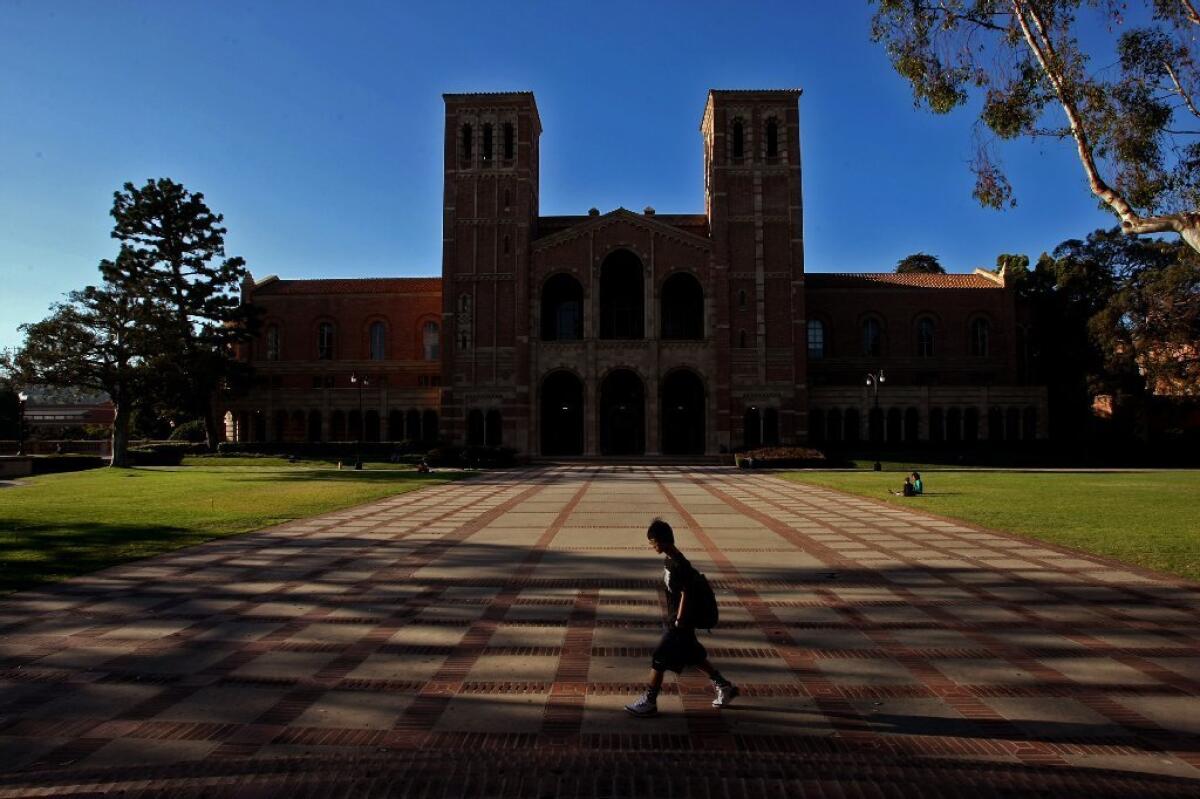UCLA to run health clinics for Motion Picture & Television Fund

UCLA Health System has signed a letter of intent to run six health clinics operated by the Motion Picture & Television Fund, the charity that provides healthcare and social services for entertainment industry workers.
Under an agrement announced Wednesday, the UCLA Health System would assume the leases of the six health clinics, and all 43 primary care physicians at the clinics would join the UCLA Faculty Practice Group. Many of the physicians also would join the faculty of the David Geffen School of Medicine at UCLA, according to a statement from the organizations.
The Motion Picture & Television Fund said the deal would give entertainment industry members and their families access to UCLA’s world-renowned specialty care and inpatient services.
PHOTOS: 2012 highest-paid media executives
All other MPTF programs and services, including the 40-bed long-term care unit, the memory impairment unit and all social services programs, such as financial assistance, Elder Connection, the Home Safety Program and many others, will still be solely operated by the fund.
The new partnership would expand the relationship between the two organizations, which are already working together on a geriatric psychiatry unit at the fund’s Wasserman Campus in Woodland Hills.
The charity has been taking steps to find operating partners and budget savings at a time of rising healthcare costs. In January 2009 the charity announced it would close its famous nursing home, which was established to care for retired actors and other performers, because of massive losses. But the board later reversed its decision after residents and their supporters mounted a campaign to keep the home open.
ON LOCATION: Where the cameras roll
“We couldn’t have found a better partner than UCLA Health System to future-proof the provision of high-quality healthcare for our entertainment industry community — care that they deserve and have come to expect from our doctors,” Bob Beitcher, the fund’s chief executive, said in a statement. “UCLA has committed to operating the health centers exclusively for the use of industry members, with the same physician group and same clinical staff at the same locations. This is a winner for all stakeholders.”
After completing a definitive agreement and securing board approval, the MPTF and UCLA plan to integrate the two operations in late spring 2014.
“We are excited and energized about our partnership with the Motion Picture & Television Fund,” said Dr. David Feinberg, president of the UCLA Health System and CEO of the UCLA Hospital System. “UCLA recognizes its obligation to help provide the highest quality patient care to residents throughout Los Angeles County, and affiliating with MPTF, which has a long history of community-based, skilled patient care, is a significant step toward helping us achieve that goal.”
PHOTOS: Cable versus broadcast ratings
Dr. Janice Spinner, chief medical officer for the MPTF, will remain in her role in the new organization, which will operate as an independent unit within UCLA. The new outpatient health system will be co-branded by the MPTF and the UCLA Health System, and an advisory panel with equal representation from both organizations will provide strategic direction.
The MPTF currently provides primary healthcare to 60,000 industry members and their families through its health centers and Health Wheels, its mobile health van.
The UCLA Health System has operated for more than half a century and comprises Ronald Reagan UCLA Medical Center; Mattel Children’s Hospital UCLA; the Resnick Neuropsychiatric Hospital at UCLA; UCLA Medical Center, Santa Monica; and the UCLA Medical Group.
ALSO:
In reversal, Motion Picture Home to remain open
Motion Picture & Television Fund launches fundraising campaign
Motion Picture & Television Fund nursing home plan hits snags in Washington
twitter: @rverrier
More to Read
From the Oscars to the Emmys.
Get the Envelope newsletter for exclusive awards season coverage, behind-the-scenes stories from the Envelope podcast and columnist Glenn Whipp’s must-read analysis.
You may occasionally receive promotional content from the Los Angeles Times.










